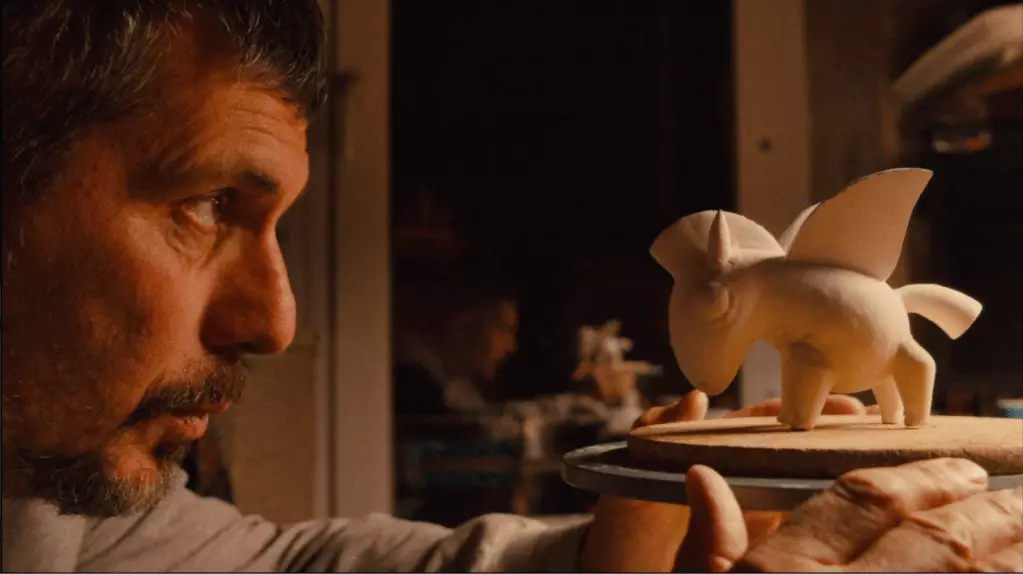Art has long served as a powerful medium for communication, expression, and resistance, particularly in times of conflict. The documentary feature “Porcelain War,” directed by Brendan Bellomo and Slava Leontyev, captures this essence by highlighting the resilience of the Ukrainian spirit amidst the war waged by Russia. Through its poignant narrative, the film emphasizes the transformative potential of art as a tool for resistance, a theme vividly encapsulated in the metaphor that likens Ukraine to porcelain—fragile yet indestructible.
“Porcelain War” uniquely intertwines personal stories with broader socio-political realities. Leontyev, an artist who chose to remain in Ukraine during the tumultuous crisis, embodies the film’s central thesis: art can serve as our most potent weapon against violence and oppression. In interviews, Leontyev articulates how tools like a camera can wield more influence than traditional arms, providing a new means to ‘paint’ the narrative of resistance. This perspective encourages audiences to view creativity not merely as a form of expression, but as an act of defiance that can challenge the status quo.
Art as a Form of Resistance
The recognition garnered by “Porcelain War” at prestigious events, such as its recent accolade from the Directors Guild of America and a nomination from the Producers Guild of America, underscores the film’s relevance. Influential figures like Guillermo del Toro have publicly praised the documentary for its insights on the role of art in times of darkness. Del Toro’s poignant assertion that art is increasingly at risk of being devalued amidst global strife reflects a concerning trend, as political turbulence often leads to the suppression of artistic voices.
Challenges Ahead for Artists
As the fabric of the world grows increasingly fragile, artists may find themselves on the front lines of societal change. The recent upheaval surrounding cultural institutions, as seen in Donald Trump’s controversial actions concerning the Kennedy Center for the Performing Arts, further highlights the precarious position of art in contemporary society. These shifts call for a resilient creative community capable of asserting the importance of art as a catalyst for awareness and understanding.
The support for “Porcelain War” transcends borders, bringing together filmmakers and artists from various backgrounds, including Chris Columbus, Rashida Jones, and Julie Taymor. The filmmakers plan to utilize the film’s platform to foster discussions and screenings across the globe. This collective effort not only amplifies the message of the documentary but also reinforces the idea that the spirit of resistance can flourish anywhere.
“Porcelain War” is a testament to the enduring power of art in the face of adversity. Through its exploration of the profound implications of using creativity as a weapon against oppression, the film resonates deeply with audiences worldwide, urging them to recognize that even in the darkest times, the spirit of resistance is alive and thriving through art. Ultimately, it reminds us all that while fragile, the human spirit is incredibly strong—much like porcelain.


Leave a Reply